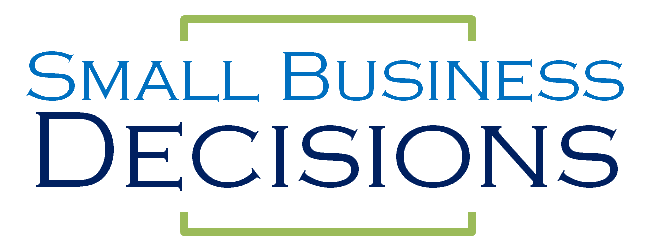A strong financial leader is critical to help navigate major disruptions to your business. Your CFO should be your strategic partner on the executive team. They should help you answer questions like:
- “Will we have any cash in the bank in six months?”
- “How are we going to pay for this?”
- “Will this even be profitable when we make the change?”
Many of you don’t have enough money or even enough work to keep a high potential CFO busy. But, you would gain huge benefits from a fractional CFO or part-time CFO even if you could never afford their full-time salary.
Enter the Fractional CFO
Fractional CFOs are highly skilled, highly specialized Part-Time CFOs who are positioned to give you their best value in a short amount of time. They are able to give you 80% of the value of a highly skilled CFO in 20% of the time.
Imagine the impact of an S&P or Fortune 500 caliber CFO for your business.
“But I can’t afford to pay for that” – True. However, you might be smart to pay for a specialist to give you their most impactful time. The 80/20 rule applies here. You can get a massive amount of value from 20% of a high caliber specialists time. And you’ll get more value from them than from a full-time person you can afford.
Why Fractional CFO instead of full time?
This is a factor of business size. The question is not if a company needs a strategic CFO, it’s a question of when. The Fractional approach will give you access to a critical skilled function before you can afford that function full-time.
Some guidance*: Most businesses between $5M and $50M a year are prime candidates for a Fractional CFO. If you’re larger than $50M a year, a full-time CFO is probably worth your while, but they will need to hire experts or consultants to fill out the various CFO functions such as Cash Forecasting or Treasury.
A fractional expert will give you results sooner than a less experienced generalist who can eventually figure it out. The growing phase of a business usually can’t afford to have someone learn by mistake in such a critical role.
*guidance disclaimer: you need to decide what’s right for your own business.
What’s the difference between a CFO and a controller?
If you split the finances of your company into past, present, and future. The controller owns past and present, while the CFO owns using that information to plan your future. A great controller can quantify exactly where you are right now. A great CFO can quantify where you want to go, and draw a map for how to get there from here.
A rock-star controller will be focused on excellence in reporting and ensuring that financial control is achieved through process, reporting, and tracking. A controller is focused on what has happened and is obsessed with accuracy and timeliness of information. Controllers are enablers and leaders of excellence in execution.
A rock-star CFO will be a strategic partner who is focused on where your company is heading. They will enable strategic decisions through forecasting and scenario analysis. They will quantify your “what-ifs” and crazy ideas and help you decide which concepts should be turned into a quarterly or annual operating plan. CFOs are enablers and leaders of excellence in strategy and its financial impact.
Some will disagree with this definition based on the fact that CFOs really are responsible for both. I’m choosing to delineate this way based on what most small businesses need, not based on the CFO office structure at large companies.
Get the right kind of help
An expert CFO can help you to solidify the financial plan for your company. They can establish your financial and cash balance forecast and identify ways to improve your cash balance through treasury or through operational improvements. Don’t spend the money on a CFO to do controllership functions.
Many small businesses start by looking for a CFO from their local CPA office. That’s actually a great place to start. But, go in knowing that less than 5% of the CPA exam questions look at the candidate’s effectiveness in financial planning. Ask a generic open-ended question about CFO services. If they specialize in this, they’ll give you an assessment of what they think you need fairly quickly. If they don’t specialize, they probably won’t straight up admit it, but they’ll ask you what you think you need.
Where do you find Fractional CFO help?
Shameless plug:
We do this specifically. Send me a note: Nate@SmallBusinessDecisions.com
You can also look for Fractional CFO or Forecasting consultants via search, local small business support groups, LinkedIn, freelancing sites, or your personal network. Many of my Fractional CFO and Chief Forecaster gigs have come from referrals or, in my early days, from freelancing sites.
What to look for in a CFO:
If you’ve looked things over and have decided you need a CFO, congrats! This should be an exciting step for you. Think about these critical aspects when you’re interviewing candidates:
- Trust, Cultural fit, and Communication: Can the CFO lead the entire executive team through a difficult financial decision and enable the entire team to be on board with the go-forward plan? A CFO needs to translate financial gobbledygook into an “aha” moment where the team knows exactly what to do.
- Forward Thinking Strategic Mindset: Your CFO should have a strategic bent that can always find a path forward to where you want to be from where you are today. The CFO should be a strategic decision enabler who is excellent at drawing a plan that is easy for the business to execute.
- Product and Industry Chops: The CFO needs to be able to comprehend your business and its place in the market. They need to understand how your business works, and how to turn that into financial advantage. Your CFO needs to ensure the most critical parts of your business are fully funded while making cuts or allowing more risk in areas that are less critical.
You need a controller before a CFO can be effective. CFOs need the data and process control that a controller provides as a foundation to launch strategy from. Many great controllers can do parts of a CFO role, but the personality and inherent motivational traits that make someone great at one role often make them horrible at the other.


